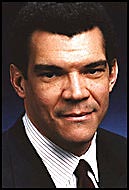
| Write On |
 |
followthemedia.com - a knowledge base for media professionals |
|
|
AGENDA
|
||
The Newsweek Debacle: Whatever Happened to the Rule That Before Something Got Printed It Had Two Reliable Named Sources?Ever since the global revulsion to the Abu Ghraib prison scandal in Iraq the media has been aware that particularly in the Moslem world they take their religion and customs very seriously, and when American wrongdoing towards Moslems is uncovered itís going to cause very serious consequences. That doesnít mean that such events should not be reported, but it does mean extra care needs to be taken to ensure such reporting is correct.And that is the fatal flaw in the entire Newsweek debacle of how two of its top, most trusted reporters, using just one unnamed source for reference, stated point-blank that US troops at Guantanamo Bay, Cuba, had flushed a Koran (the word of Allah) down a toilet. To a Moslum it doesn’t get much worse than to desecrate the Koran and yet Newsweek editors, and, allegedly some Pentagon officials who knew beforehand what the magazine was printing, didn’t seem to understand the possible consequences of printing such an item without irrefutable proof.
Perhaps its unfair to think the magazine could have envisaged riots would break out in which at last count at least 15 people have died. But they surely did recognize that such an item would be fodder to extremists looking for anything with which they can verbally attack the US, cause embarrassment to the US government and bring US foreign policy in the Moslem world to rock bottom. If their item was true then the US government and its foreign policy gets what it deserves, but if its not true, as the magazine now admits (or rather it can’t prove that it was true) or if such a story cannot be thoroughly sourced then should it have been printed in the first place? The obvious answer is No, and that is not just plain hindsight. It should not have been printed without absolute corroboration from two sources who could be named if necessary. And if it could not be so corroborated this week what harm would it have done to American journalism and the people’s right to know if the item had been delayed until it could have been so proved? And for those who would argue that if such restrictions were in place then far fewer stories would get reported, then that might go some way to improving the “trust factor” between the US print media and its public. A University of Connecticut Department of Public Policy survey reports that 53% of Americans believe that stories with unnamed sources should not be printed. When this reporter was a young news editor for United Press International in London more than 30 years ago he would get nightly phone calls from the BBC World Service stating that one news agency was reporting a certain story and they would like to have our version as quickly as possible. . We were always grateful to get a tip about a story we didn’t have, but I once asked the caller why the urgency? I was told the World Service had a firm policy it could not go with any news agency story unless it had been corroborated by another international agency. In other words every story broadcast required two agency reports. Only very very infrequently would they go with just one agency, and if that was all they had, and they felt they really had to go with it, they made very sure to broadcast the source in case it was wrong so it would be the agency that got the blame and not the BBC. The BBC World Service had a brand to protect, it didn’t want to be out there hanging on a branch, and it wanted corroboration for all its agency stories. Not a bad policy and one that would have done Newsweek the world of good and saved it from the embarrassment of issuing an apology and a retraction and seeing its brand severely tarnished.  Newsweek editor |
| copyright ©2005 ftm publishing, unless otherwise noted | Contact Us • Sponsor ftm |